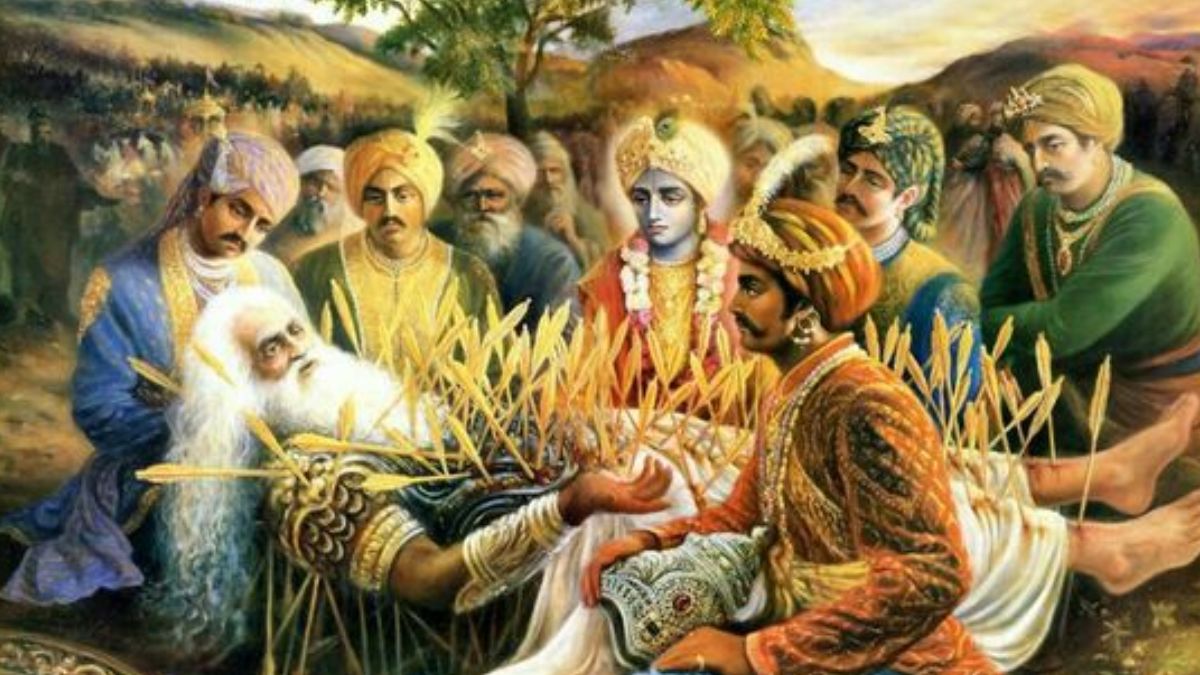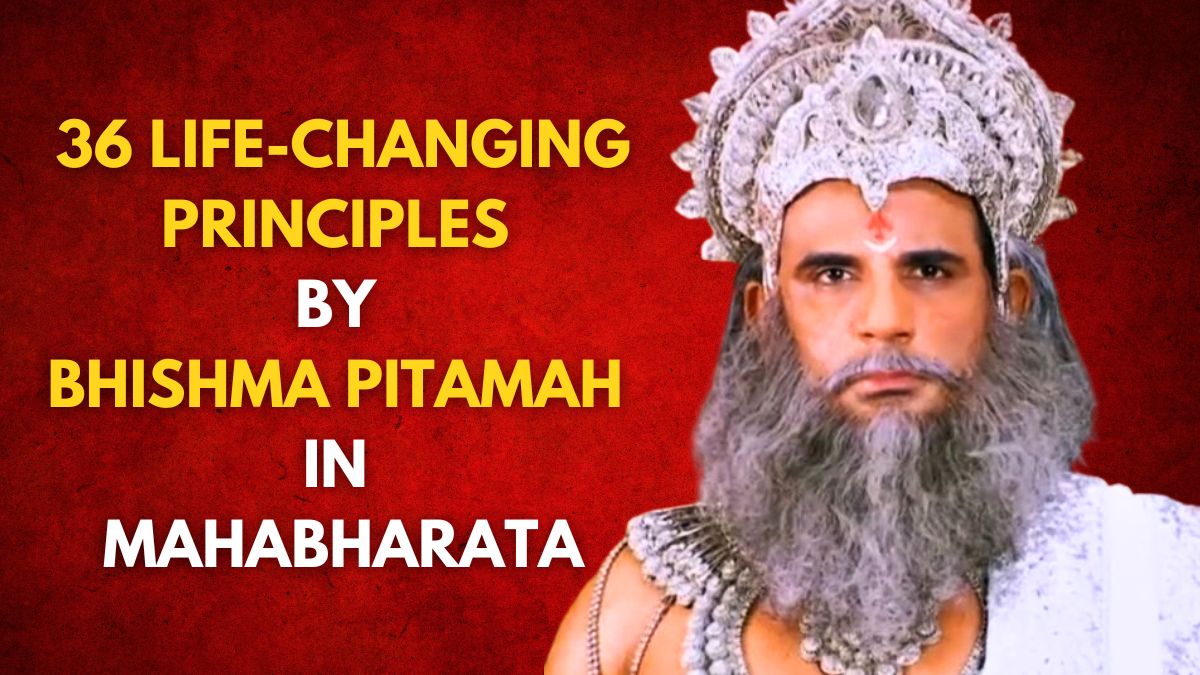- By Kashish Rai
- Fri, 27 Oct 2023 04:07 PM (IST)
- Source:JND
Bhishma Pitamah is one of the most significant characters in the longest Hindu epic Mahabharata. Bhishma Pitamah was the son of King Shantanu and the goddess river Ganga. Everything he said came to pass because of his unwavering honesty. He had knowledge of several martial arts styles. Bhishma Pitamah received education from some of the best sages of his era, such as Parashurama who is renowned as the champion of using weapons. Bhishma was a major character in the Mahabharata, especially in the events that preceded the battle of Kurukshetra. He was a well-liked counsellor to the Kuru monarch and was instrumental in settling conflicts between rival groups. But his sense of duty and allegiance to the throne frequently put him in a difficult situation where he had to make controversial choices.
During the Kurukshetra War, he fought alongside the Kauravas, but he struggled to balance his moral principles and his obligation to his family. He believed he could not break his oath of allegiance to the Hastinapur crown, even though he did not want to battle the Pandavas, his great-nephews. Despite his greatest efforts, he was ultimately vanquished by the Pandavas. On this deathbed, Bhishma Pitamah gave 36 significant life principles to the eldest Pandava Yudhishtira. These principles are still relevant today to win in life and overcome various hardships.

Yudhishtira, the oldest Pandava, received 36 important life lessons from Bhishma Pitamah while he was on his deathbed. (Image Source: ISKCON.inc)
36 Life-Transforming Principles By Bhishma Pitamah In Mahabharata
1. Be proud, but refrain from being arrogant and self-satisfied.
2. Steer clear of excessive female contact.
3. Never harbour resentment towards anyone. Protect and honour women at all times.
4. It is pointless to harbour compassion for people who disobey the law.
5. The king should expand the treasury without imposing harsh or superfluous levies.
6. Happiness shouldn't come at the expense of dignity.
7. Speaking or addressing should be devoid of any trace of modesty.
8. You should act in an honest and pure manner towards other people. It needs to be humble in some way. There shouldn't be harshness in speech.
9. It is never appropriate for a monarch to be with bad people.
10. Never fight with your best brothers.
11. Never accept a key position from a non-patriot.
12. The ideal kind of service is one that causes no harm to others.
13. A ruler must exercise caution when making plans and refrain from disclosing them to evil.
14. It is improper to overstate one's own virtues.
15. It is ethical to honour saints and sages.
16. A ruler needs to follow the path of Dharma at all times. Avoid taking the wrongful path.
17. One ought to continue to trust in God and show kindness to others.
18. Be cautious when donating. The undeserving should never take charity.
19. A monarch ought to avoid envious individuals. Refrain from lending them money.
20. People who misbehave shouldn't be trusted.
21. A ruler must never harbour hatred for anyone and must always be chaste.
22. Never provide refuge to those who exhibit poor behaviour or a corrupt mindset.
23. When punishing, a king needs to exercise caution. Nobody ought to be punished without being put to the test.
24. A ruler needs to keep his plans and confidential secrets to himself.
25. Scholars and wise men should be treated with humility and respect.
26. Gurus ought to be revered at all times. Serving the guru is also necessary.
27. God is to be worshipped without judgement. Merit will be acquired only then.
28. Earnings from undertakings where there is no loss should be prioritised.
29. One should do a thorough inquiry and gather knowledge about someone before confronting them. Don't harm without understanding him beforehand.
30. A king's virtue is efficiency. However, the opportunities need to be handled carefully.
31. If you wish to exert authority over someone, do not speak softly.
32. If a king treats someone kindly, do not criticise him.
33. A king needs to show unwavering affection and dedication to his elders.
ALSO READ: 5 Unknown Facts About Vrindavan And Braj That Will Leave You Shocked
34. When you kill your foes, don't cry.
35. It's important to regulate one's temper and stay away from fits of rage.
36. Even though the food we eat tastes delicious and is visually appealing, we shouldn't consume unhealthy food.

